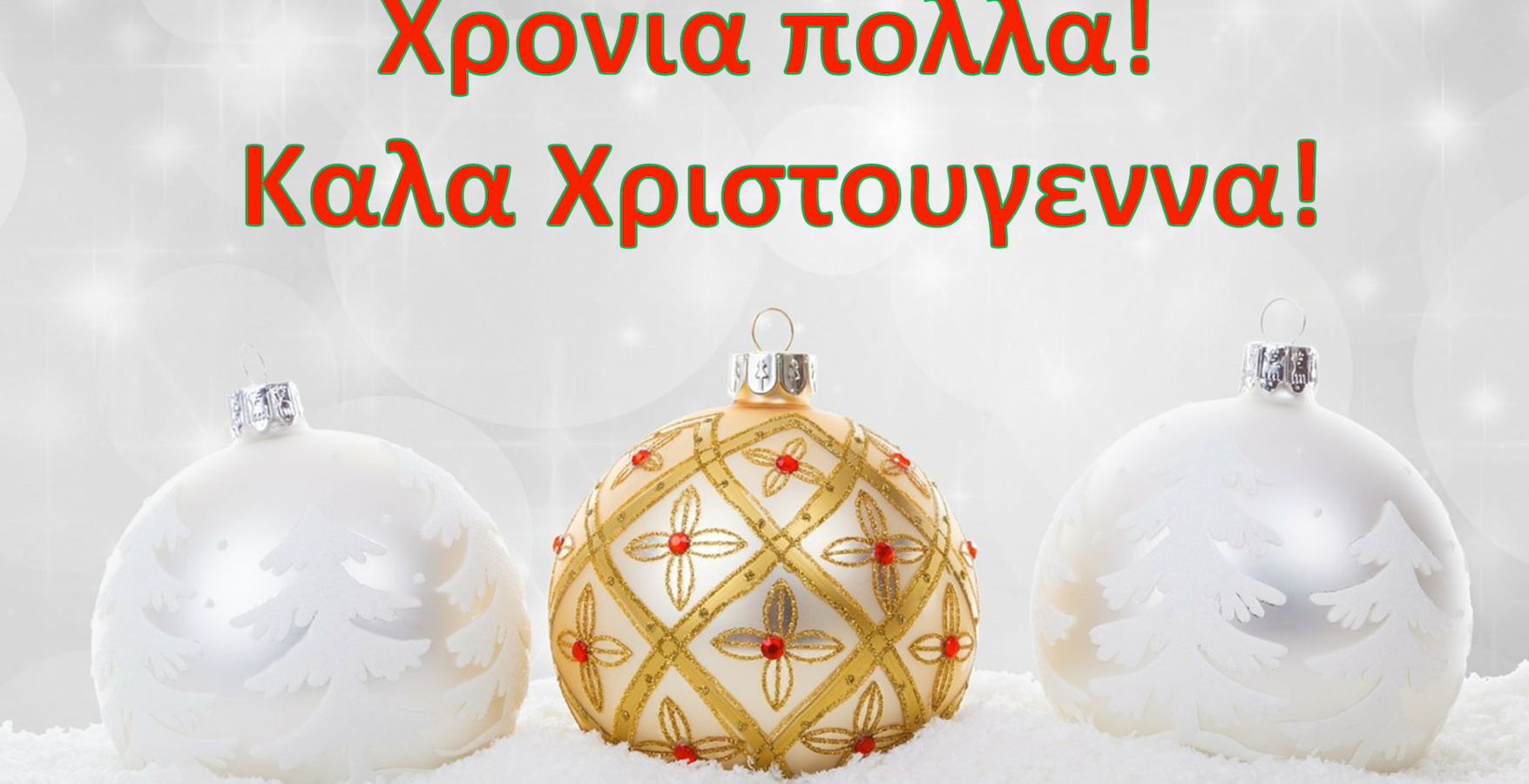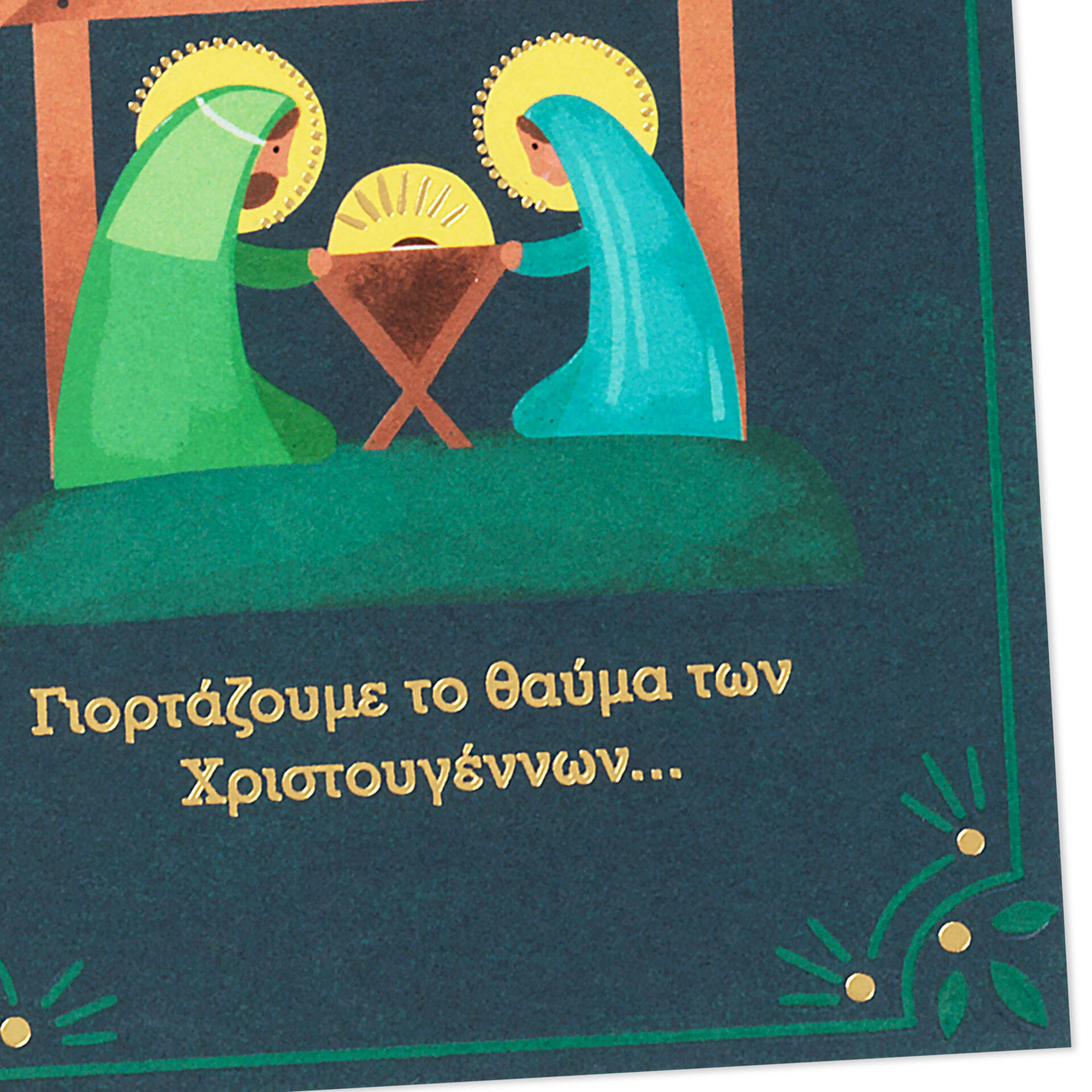A Festive Lexicon: Exploring Christmas Wishes In Greek
A Festive Lexicon: Exploring Christmas Wishes in Greek
Related Articles: A Festive Lexicon: Exploring Christmas Wishes in Greek
Introduction
With enthusiasm, let’s navigate through the intriguing topic related to A Festive Lexicon: Exploring Christmas Wishes in Greek. Let’s weave interesting information and offer fresh perspectives to the readers.
Table of Content
A Festive Lexicon: Exploring Christmas Wishes in Greek

Christmas, a time for celebration and goodwill, transcends cultural boundaries. In Greece, the festive season is imbued with unique traditions and expressions of joy. A crucial element of this celebration is the exchange of heartfelt wishes, often conveyed in the beautiful and melodic Greek language. This article delves into the world of Christmas wishes in Greek, exploring their significance, structure, and nuances.
The Essence of Christmas Wishes
Christmas wishes in Greek, like those in many cultures, encapsulate the spirit of the season: hope, peace, joy, and prosperity. They reflect a desire for a happy and fulfilling life, not only for the recipient but for the wider community. Beyond the literal meaning, these wishes embody a deep-seated cultural value system that prioritizes family, faith, and community.
Structure and Common Phrases
Greek Christmas wishes often follow a specific structure, incorporating blessings and good wishes for the coming year. Some common phrases include:
- "Χρόνια πολλά!" (Chronia Polla!) – This is the most common and versatile Christmas greeting, meaning "Many Years!" It signifies wishes for a long and happy life.
- "Καλά Χριστούγεννα!" (Kala Christougenna!) – This translates to "Merry Christmas!" and is a heartfelt expression of festive cheer.
- "Καλή Χρονιά!" (Kali Chronia!) – Meaning "Happy New Year!", this wish extends the celebratory spirit into the new year, hoping for a successful and fulfilling year ahead.
Beyond the Basic Greetings
While these standard greetings are widely used, Greek Christmas wishes can also be personalized and nuanced. They often incorporate specific blessings for:
- Health and well-being: "Υγεία!" (Ygeia!), meaning "Health!" is a common wish, reflecting the importance of good health in Greek culture.
- Happiness and fulfillment: "Ευτυχία!" (Eftychia!), meaning "Happiness!", expresses a desire for joy and contentment in life.
- Prosperity and success: "Επιτυχία!" (Epitychia!), meaning "Success!", hopes for a fruitful and prosperous year.
- Love and family: Wishes for strong family bonds and loving relationships are frequent, reflecting the emphasis on family in Greek society.
The Importance of Context
Understanding the context of the wish is crucial. The formality of the greeting, the relationship between the sender and recipient, and the occasion all influence the choice of words and the level of personal touch. For instance, a formal wish to a colleague might be more restrained than a heartfelt wish to a close friend or family member.
Benefits of Using Greek Christmas Wishes
Beyond the cultural significance, using Greek Christmas wishes offers several benefits:
- Expressing sincerity: The use of the Greek language adds a personal touch and demonstrates a genuine effort to connect with the recipient.
- Preserving tradition: Passing down these traditional greetings helps maintain the cultural heritage and ensures their continued use for future generations.
- Building relationships: Sharing these wishes fosters a sense of community and strengthens bonds, whether with friends, family, or colleagues.
FAQs: Christmas Wishes in Greek
1. What is the most common Christmas greeting in Greek?
The most common greeting is "Χρόνια πολλά!" (Chronia Polla!), meaning "Many Years!"
2. How do I wish someone a Happy New Year in Greek?
"Καλή Χρονιά!" (Kali Chronia!) is the traditional New Year’s greeting.
3. Are there specific wishes for different occasions within the Christmas season?
Yes, there are specific greetings for events like New Year’s Eve ("Καλή Πρωτοχρονιά!" – Kali Protochronia! – Happy New Year’s Eve!) and Epiphany ("Χρόνια Πολλά!" – Chronia Polla! – Many Years!).
4. How can I personalize my Christmas wishes in Greek?
Adding a specific blessing like "Υγεία!" (Ygeia! – Health!) or "Ευτυχία!" (Eftychia! – Happiness!) can personalize the greeting.
5. Are there any specific customs related to Christmas greetings in Greece?
Traditionally, Christmas greetings are exchanged in person, often accompanied by a hug or a kiss.
Tips for Using Greek Christmas Wishes
- Learn the pronunciation: Practice saying the greetings correctly to ensure their proper delivery.
- Consider the context: Adjust the formality and personal touch based on the relationship with the recipient.
- Be sincere: Express the wishes genuinely to convey your heartfelt sentiment.
- Combine greetings: Use a combination of "Χρόνια Πολλά!" (Chronia Polla!) and "Καλά Χριστούγεννα!" (Kala Christougenna!) for a comprehensive greeting.
Conclusion
Christmas wishes in Greek are more than just greetings; they are a reflection of the deep cultural values and traditions that define the festive season in Greece. These wishes convey hope, joy, and well-being, celebrating the spirit of unity and goodwill. By understanding the significance and nuances of these expressions, we can appreciate the richness of the Greek language and culture, and engage in the festive spirit with a deeper understanding and appreciation. As we share these wishes, we participate in a long-standing tradition, strengthening bonds and spreading the warmth of the season.








Closure
Thus, we hope this article has provided valuable insights into A Festive Lexicon: Exploring Christmas Wishes in Greek. We appreciate your attention to our article. See you in our next article!
Leave a Reply